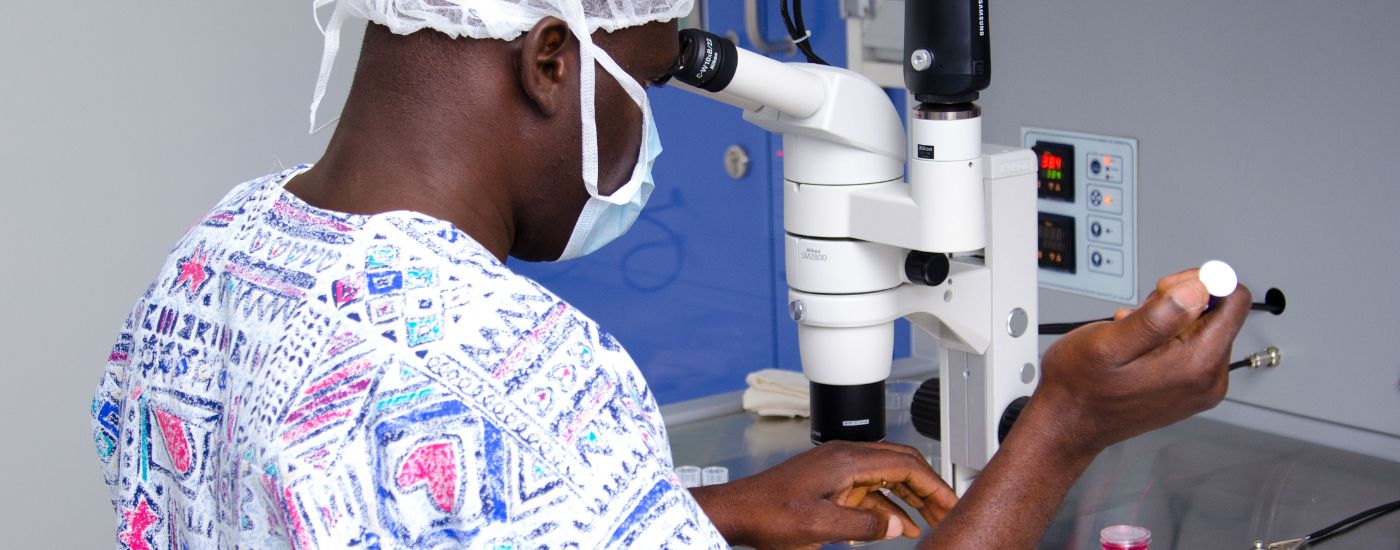What is ICSI?

Who needs ICSI?
ICSI can benefit any man experiencing low quality or quantity of sperm. Below are some of the patients who might benefit.
Men with Low Sperm Count
Individuals with significantly reduced sperm production, due to insufficient numbers
Previous Failed Fertilization with IVF
Couples who have undergone conventional IVF with poor or no fertilisation results
Male Factor Infertility
Men with low sperm count, poor sperm motility, or abnormal sperm morphology
Unexplained Infertility
ICSI can be used as a next step for couples with no clear cause of infertility
Male with Vasectomy
Men who have had a vasectomy or have a blockage of sperm in the ejaculate
Couples Pursuing PGT
To ensure accurate genetic screening and minimise contamination
ICSI Excellence
We recognise the significance of every journey and aim to support you throughout. Watch the video to discover how we make your experience with us as positive and successful as possible.
The ICSI Process
ICSI is a complex and highly effective fertility treatment that involves several key steps. Here's a high-level look at how the process works.
Egg Retrieval and Prep
Mature eggs are collected from the ovaries after stimulation and prepared in the lab for fertilisation under controlled conditions.
Sperm Injection Step
A single healthy sperm is selected and injected directly into the centre of each mature egg using a fine, specialised needle.
Embryo Monitoring
Fertilised eggs are closely monitored to track development. The best-quality embryos are selected for possible transfer or freezing.
Embryo Transfer Day
A developed embryo is transferred into the uterus. It’s a painless procedure done in-clinic. A pregnancy test follows weeks later.
Why choose us
Advanced Technology
We leverage the latest fertility treatments and technologies to provide the most effective care
Patient-Centred Approach
We prioritise the well-being of our patients and spend time understanding your unique needs
Compassionate Support
You receive the highest quality care and emotional support throughout your fertility journey
Proven Success Rates
Our clinic boasts high success rates, giving you confidence that you are in good hands
Frequent questions
How is ICSI different from IVF?
ICSI (Intracytoplasmic Sperm Injection) is a form of IVF where a single sperm is directly injected into an egg to assist fertilization. Unlike standard IVF, which allows sperm to fertilize the egg naturally in a lab dish, ICSI bypasses potential barriers by ensuring fertilization occurs.
Who needs ICSI?
ICSI is commonly recommended for couples with male factor infertility (low sperm count, poor motility or abnormal shape), previous IVF failure, or when using frozen, donor, or surgically retrieved sperm.
Is ICSI safe for the baby?
Yes, ICSI is generally considered safe. Numerous studies show that children born through ICSI have similar health outcomes to those conceived through traditional IVF or naturally, though slightly increased risks of certain conditions have been noted in some cases.
What is the success rate of ICSI?
Success rates vary depending on several factors including the woman’s age, egg quality, and overall health. On average, ICSI fertilizes 70-80% of injected eggs, though pregnancy rates depend on embryo quality and implantation success.
How long does the ICSI process take?
The ICSI procedure itself is quick, usually taking only a few minutes per egg. However, it’s part of a broader IVF cycle that typically spans 4–6 weeks from stimulation to embryo transfer.
Can ICSI be used with frozen sperm or eggs?
Yes. ICSI is often the preferred method when using frozen sperm or eggs, as freezing can sometimes reduce the natural ability of sperm to penetrate the egg.
Are there any risks associated with ICSI?
As with all fertility treatments, there are some risks, including potential for failed fertilization, embryo development issues, or rare genetic concerns. Your doctor will discuss all risks and perform genetic screenings if necessary.
Is ICSI more expensive than IVF?
Yes, ICSI is usually an additional cost on top of standard IVF fees. The exact price varies by clinic, but many couples find the increased chance of fertilization makes it a worthwhile investment.
Our other treatments
Learn more about our other fertility treatments and fertility services




